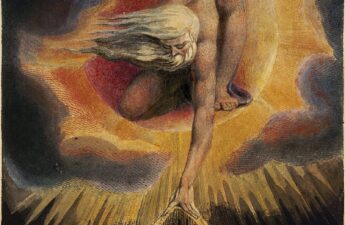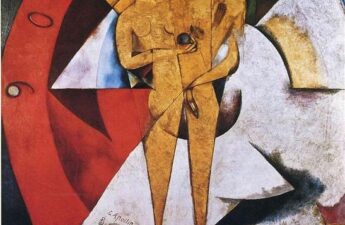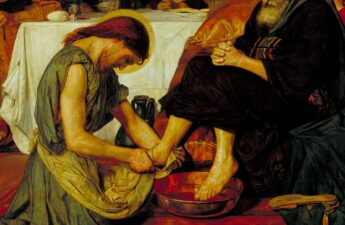“Above all, don’t lie to yourself. The man who lies to himself and listens to his own lie comes to a point that he cannot distinguish the truth within him, or around him, and so loses all respect for himself and for others.”
Fyodor Dostoyevsky, 1880, The Brothers Karamazov
The idea of self-deception is funny.
In deceiving others, it is taken for granted that we know the truth and instead of it, choose to tell a lie. It is a conscious act. If the same theory is applied to self-deception, it would mean that we are both the holder of the truth and believer of the lie. That’s hard to grasp; how could we legitimately believe something we ourselves know to be a lie? It would seem that if we knew the truth, or if it was readily available to us, we would have no choice but to accept it?
Our acceptance of whether something is true or not may often depend on how painful that truth is to bear.
When it is painful, as it often is, it’s very tempting to deny it. We reorganise the truth into something that’s easier, less painful and more convenient. Of course by doing so, it is no longer the truth and we are instead absorbing lies. We shouldn’t underestimate how effectively we can do this, how deeply ingrained these lies can become. Perhaps we knew the actual truth at one time, perhaps at some level we still do, but it is buried so deep that we are protected from it; a considerable feat.
“The armour of falsehood is subtly wrought out of darkness, and hides a man not only from others, but from his own soul.”
E.M. Forster, 1908, A Room with a View
We lie to protect ourselves from painful truths of life.
We’re dealt some difficult hands in life which bring suffering and require the bearing of responsibility. Denying the truth of our situation holds the darkness off for another day. Let us imagine that our child is sick. Their illness means they will need a great amount of care and have limited opportunity in the future. We refuse to hear or absorb this truth and instead tell ourselves a series of lies that eases the severity of our present situation. It also frees us from having to consider the hardship and heartache we will face in the future. In a feeble and naive attempt, we try to guard ourselves from the tragedies of life we believe we are incapable of handling. Pain and suffering are terrifying, but all the more so when they’re chasing us down as we run.
“All other swindlers upon earth are nothing to the self-swindlers, and with such pretences did I cheat myself. Surely a curious thing. That I should innocently take a bad half-crown of somebody else’s manufacture, is reasonable enough; but that I should knowingly reckon the spurious coin of my own make, as good money!”
Charles Dickens, 1860, Great Expectations
We lie because we are imperfect beings and are very likely to behave as such.
People make a lot of bad choices, we behave badly and our character is not without its darkness, which we expel onto the world. We cannot change the path that lead us to where we are, and that is often more painful than relieving. Imagine we have another child, and our relationship with this child is just awful, completely broken. If we were to face that truth, we would have to look at ourselves and consider our own part in how the relationship ended up like this. We might be met with extremely painful truths of our own failings or misdeeds, and their consequences.
We would have to look introspectively and do a serious amount of digging to undercover the truth of how we got to where we are. To discover how our own weaknesses, mistakes, and even worse, deliberate actions brought us here. Our own poisonous, spiteful and malevolent behaviour. Instead of facing all that truth, we establish a narrative that leaves us with a lot less suffering and requires a lot less responsibility. We shield ourselves from the trip through introspective hell, and things aren’t so bad. Except that they are.
“So the seeker of his truest, strongest, deepest self must review the list carefully, and pick out the one on which to stake his salvation. All other selves thereupon become unreal…”
William James, 1890, The Principles of Psychology
There are many reasons why we lie to ourselves, and many methods we use. Regardless of why and how, we face the same danger in doing so.
Even though we may think the ‘reality’ we have built is solid, when it holds no truth, it is under constant danger of collapsing. One cracked brick is no big deal, but if every brick we use is cracked, we end up with a completely unstable structure. The truth still exists, regardless of whether we acknowledge it, or know it.
Like a hurricane, the truth can hit us at any time without warning. When it does, our weak structure doesn’t stand a chance, it will fall down around us like a house of cards. There is nothing of any substance holding it together, and against the truth, our lies just won’t hold up. In the wake of the hurricane, our house is reduced to nothing but rubble leaving us to stand amidst the ruin. If we are to rebuild, we must do so with something strong enough to meet the truth and stay standing. The answers always lie in the place from which we divert our eyes; the truths we have been denying will be found where we least want to look.
“The truth is rarely pure and never simple.”
Oscar Wilde, 1894, Importance of Being Earnest

This is part one of a three part series, part two can be found here




2 thoughts on “Self-Deception- A Fragile Fantasy (1/3)”